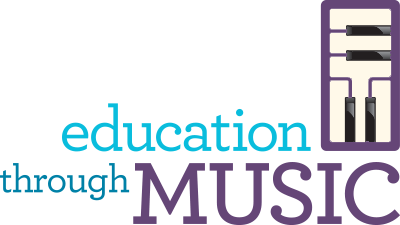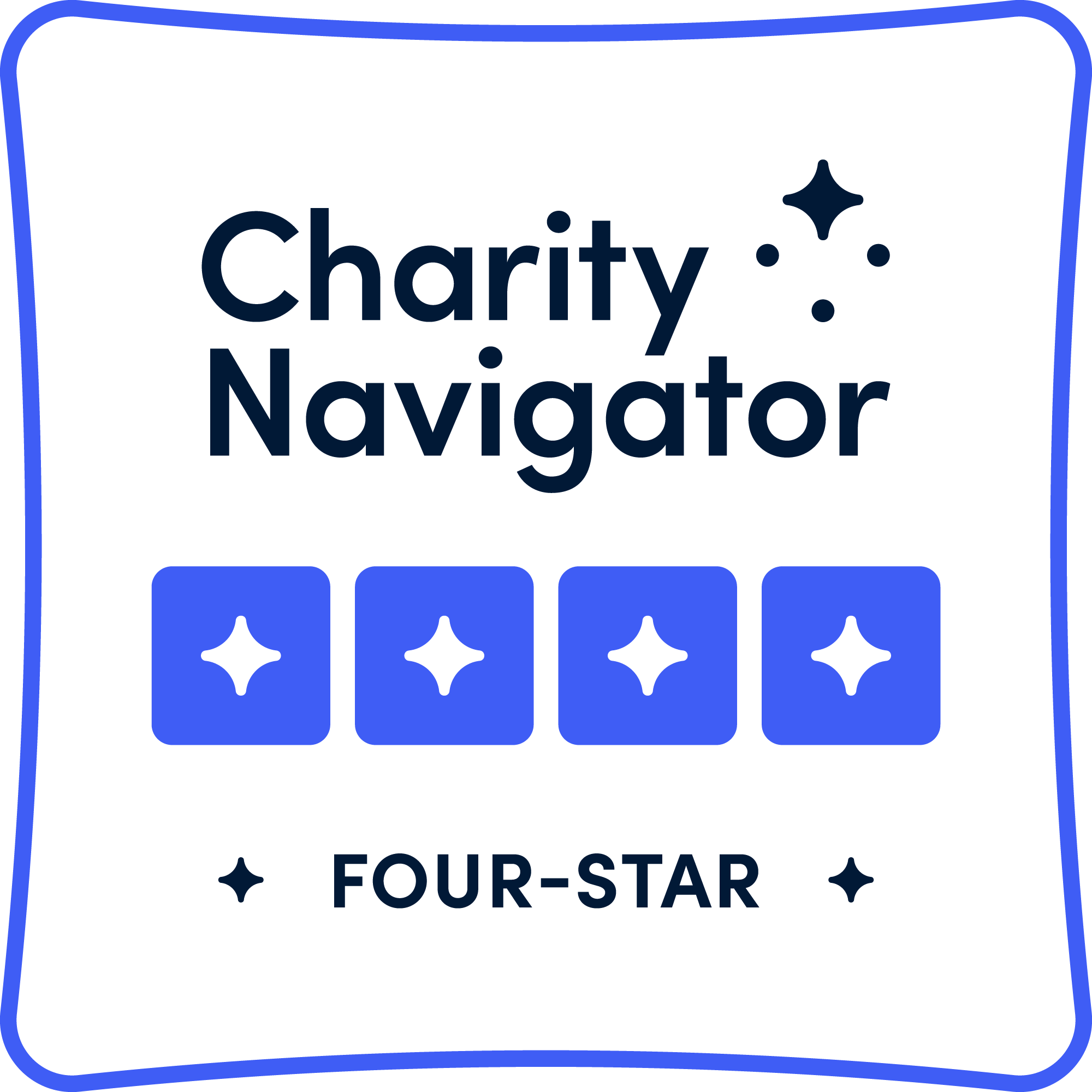Music Unites Us All
An Essay by ETM Alumnus Cassandra
It was March 2020 and I traveled home from school on a normal Friday afternoon, fully expecting to return to school the next week. By Monday, it seemed as if the whole world had turned upside-down. Quarantine had started.
I couldn’t go to school, travel on public transportation, leave my house, or visit my mother who lived on the other side of the Bronx. The city that never sleeps became a ghost town.
After waiting months—which felt like centuries—NYC is slowly reopening. But how will things work now? There is still so much uncertainty for the future. Because of that uncertainty, we are at risk of losing one of the most influential programs that NYC public schools have to offer: Music.
That cannot happen. In this essay, I will share my experiences as a performing arts student and how it has impacted me, along with my thoughts on what school would be like without music, and how music education could work in a COVID-19 world.
What Does Music Mean to Me?
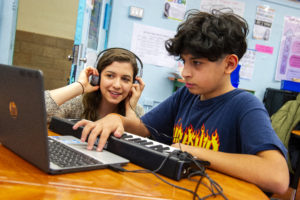
I love music, and I feel as if it is a form of expression. Sometimes it is just too hard to put my feelings into words: Like when I’m so excited that I bounce up and down and start squealing like a hyperactive tea kettle or when I am red-faced and pulling out my hair because life is just so stressful.
But with music, you don’t need to explain yourself. Some lyrics are just so relatable that it is like it’s telling your story, or it’s as if you can feel the emotion behind the melodies.
Consequently, I will listen to different types of music depending on how I am feeling. When I want to focus I listen to the smooth, relaxing sounds of Lofi Hip-Hop, and when I am happy and want to dance I like the lively beats of rock or electro-swing.
Music also allows us to individualize ourselves, as the music that we enjoy can say something about us. As an example, I really enjoy listening to Chiptune—synthesized electronic music based off of the eight bit sounds that you would probably find in old arcade games. That being said, I really enjoy playing video games!
Most importantly, you can use music to show your artistic side. I love to write my own songs and sing them. It is a great way for me to get my thoughts and ideas out and has helped me to process different emotions. Music has been especially helpful to me throughout my years in foster care. By listening to, writing, and singing different songs, I was able to let out all of my pent up anger, sadness, and disappointment in a non-destructive way.
My Experience With Music in School
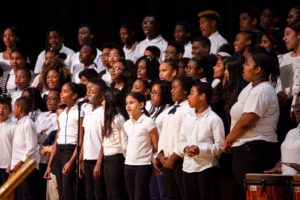
When I entered [ETM partner school] M.S. 180 I was presented with mountain of choices for an arts class. After going back and forth— for what seemed like ages— trying to choose whether I should do art or choir, I threw my arms up in the air and finally decided to just try something new. I joined the band and played the trumpet. Having no prior experience with any instrument except for the recorders they gave my class in fourth grade, I was pretty excited.
Turns out, it was way harder than I expected. The sheet music looked like a jumble of black splotches, and I had a bit of trouble getting the trumpet to make the noises that I wanted it to, mainly because you could get three different notes (without moving a finger!) depending on how you blew into it.
Yes, it was challenging, but after a few months of practicing it became fun! I felt so satisfied when I was able to play a song correctly, or when those black splotches finally made sense!
I continued with band for two years and then had a change of heart in eighth grade. After watching the choir perform again and again, I started to realize that I wanted to sing rather than play an instrument. Playing the trumpet just didn’t give me the same level of happiness and satisfaction that singing did. I had a desire to do what I loved, and I had already spent enough time in the band to know that while I thought it was cool, it wasn’t for me.
Once I joined the choir, it was as if a door magically opened for me. I was instantly welcomed to the group and caught up quickly with the lessons and learned songs. By the end of my first month, I felt as if I had been there for the whole three years. Singing in a group felt normal to me. I felt like an equal, rather than a newcomer, and I was never excluded in activities due to my lack of experience.
The classes were productive and engaging. I quickly joined chamber choir, an after-school version of choir where we practiced for concerts and out of school performances. We sang at [ETM’s] gala, participated and performed at a middle school fair at P.S./M.S. 194, went Christmas caroling at an office for the workers, did special performances at school concerts, and more.
It was an incredible experience, and I made a lot of friends. I started to feel more comfortable singing around other people and I felt as if I had a whole community of passionate singers around me.
I would be heartbroken if music education is taken away from schools. It is so hard for me to imagine M.S. 180 without the band, choir, and orchestra—after all, it is a school for the arts, and music is definitely a form of art.
What Would School Be Like Without Music?
It makes me shudder to think of what my time with M.S. 180 would have been like without music classes. If I hadn’t been exposed to it, I wouldn’t have experienced the buzz of excitement or gut-wrenching nervousness that comes from performing on stage; nor would I have had the courage to belt out lines from Charlie Puth’s “Attention” with my friends!
There would not have been any concerts—a BIG deal in any performing arts school, and kids like me who enjoy performing would not have been given the opportunity to nurture and showcase our talents.
If music education is taken away from schools now, future students will not have an opportunity to have the experiences and music-inspired friendships that students like me have had—which is cruel.
How Can We Keep Music in the Future?
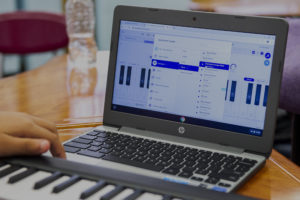
Seeing as it is not safe for people to be in groups, having virtual music classes might be a way that we can continue music education in a safe and engaging way. For instance, my choir teacher [Mr. Q] had a set-up where each day of the week would focus on a different aspect of music and singing, like “Technique Tuesday” and “Writing Wednesday”. He also used a program called Musicfirst to assign us activities: like composing our own melody in eight measures or more, or giving us songs to practice.
The part of virtual music class that I loved the most were the projects. As an example, a songwriting project! Mr. Q showed us videos about the structure of a song and the basics for constructing one. Then, we were free to create! Each week we worked on a different part of our song, and the goal was that by the end we would have a recorded version of the whole thing.
I spent hours writing each week, and realized how much fun it was to do. It was soothing to write down my troubling thoughts and feelings in a way that was easy for me to express. Since then, I have continued to write songs and plan on making many more!
Sadly, we don’t all own a crystal ball to predict the future, and a lot of things have—and will continue to—change. However, removing music from schools should not be one of them. Music is a key to open the doors of imagination, freedom, and self-expression. All children should have an opportunity to learn about it. Music unites us all, and we cannot lose it.


